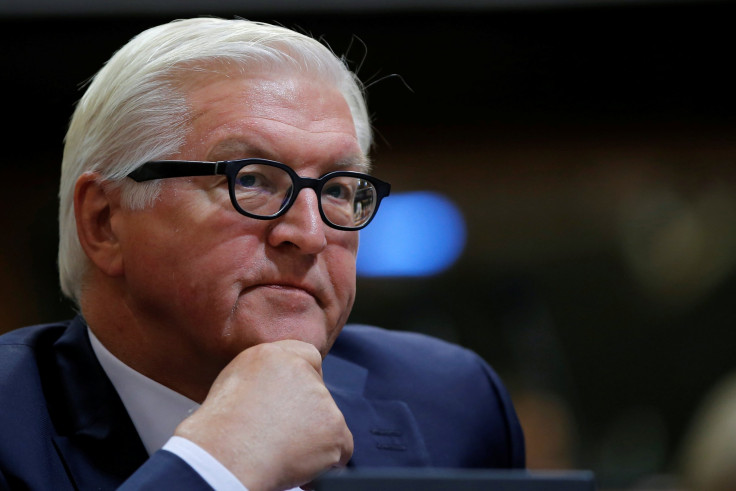War In Europe? Germany, 15 Other Countries To Push For New Arms Control Deal With Russia

A senior German official said 16 European countries, led by Germany, joined forces to push for a new arms control agreement with Russia, hoping to prevent an arms race in Europe after heightened tensions over Moscow's annexation of Crimea and Russian aggression in Ukraine.
“Europe’s security is in danger,” German Foreign Minister Frank-Walter Steinmeier told Die Welt newspaper in an interview published Friday. “As difficult as ties to Russia may currently be, we need more dialogue, not less.”
All 16 countries — Austria, Belgium, Bulgaria, the Czech Republic, Finland, France, Germany, Italy, the Netherlands, Norway, Portugal, Romania, Slovakia, Spain, Sweden and Switzerland — belong to the Organization for Security and Cooperation in Europe (OSCE) and have joined Steinmeier’s initiative to develop a new arms control deal with Russia, an idea he first brought up in August. The group will issue a joint statement later Friday and meet again on the sidelines of the ministerial level OSCE meeting in Hamburg, hosted by the current head of the organization, Germany.
Steinmeier — a Social Democrat, has been nominated to become the president of Germany next year — condemned Russia’s support for separatists in eastern Ukraine and its annexation of Crimea, saying Russian aggression undermined the trust built over decades in Europe and also threatened to start a new arms race. He called for more countries to join his initiative.
“We have a responsibility to leave no stone unturned in our effort to increase security and peace,” he said.
The U.S. expressed skepticism over the initiative, pointing out that Russia failed to abide by existing treaties and agreements.
A top Ukrainian official said last week less U.S. support to the country could result in further destabilization of the region and could trigger worse consequences for other parts of the world.
“This equilibrium, if it is ruined, then it could actually lead to drastic consequences in other parts of the world,” Ivanna Klympush-Tsintsadze, deputy prime minister for European and Euro-Atlantic integration of Ukraine, said.
© Copyright IBTimes 2025. All rights reserved.






















